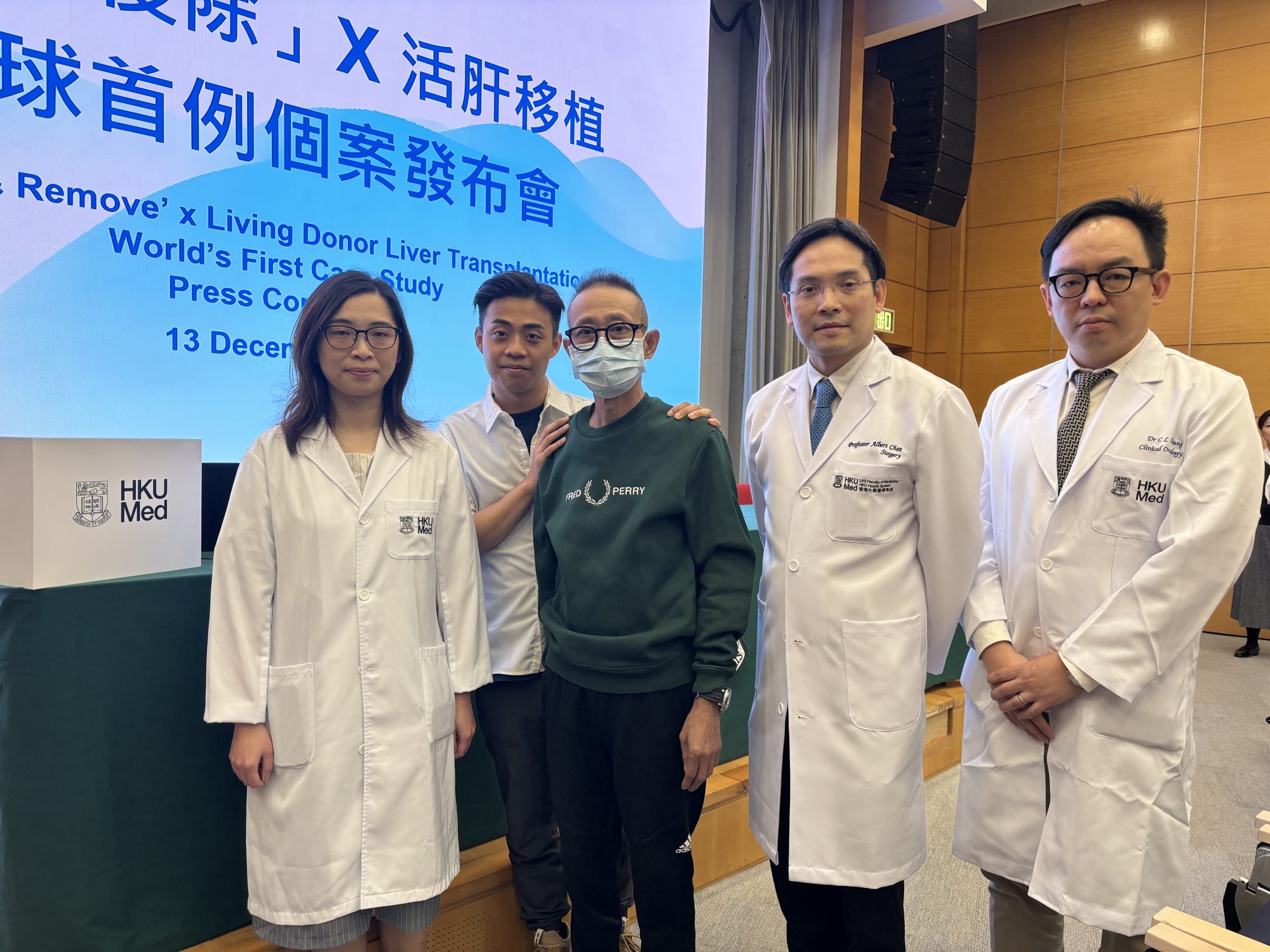Hong Kong researchers claim treatment reducing liver cancer tumours is world’s first
“The recovery of the patient is encouraging. The team is honoured to provide new hope and possibilities for the treatment of liver cancer.”

Doctors said in November last year that 65-year old Wong Lok-wing had only about six months to live owing to the tumour measuring 18.2cm (7 inches) in diameter that had spread to his main portal vein, which transports blood to the liver.
To treat Wong, the research team used the “reduce and remove” treatment, which allowed patients previously ineligible for a transplant to undergo the operation.
The team used a combination of stereotactic body radiation therapy – a targeted tumour treatment – and immunotherapy to revert Wong’s tumour back to stage one.
HKU: Hong Kong ‘virtual patient’ boosts students’ diagnostic skills
In August, Wong successfully underwent a 12-hour operation to receive a liver provided by his son, Nathan, and he has remained cancer-free in the months since.
Liver cancer is the fifth most common and third-deadliest form of the disease in Hong Kong, accounting for 1,447 deaths in 2021, according to the Hospital Authority.
According to the team, less than a third of liver cancer patients were eligible for liver surgery or transplant – the only options available. All other patients had about a 30 per cent chance of surviving another five years, the team said.
Chan said that more than 100 patients in Hong Kong had been successfully treated using the “reduce and remove” strategy since 2019. The team published their findings in January.
Hong Kong approves 2 new cancer drugs under streamlined application process
The treatment was especially useful for elderly patients and those who were not suited to high-risk, complex operations, he said.
Chan said the team was advancing their research by looking for “molecular markers” that could help identify patients who would respond well to the treatment.
The researchers were also exploring additional immunotherapy treatments in hopes of raising the rate of patient response to the treatment to 80 per cent, up from 50 to 60 per cent.
“We have confidence that we can continue this treatment, and our future direction is how we can … enhance the efficacy of this regime so that more patients can benefit,” Chan said.